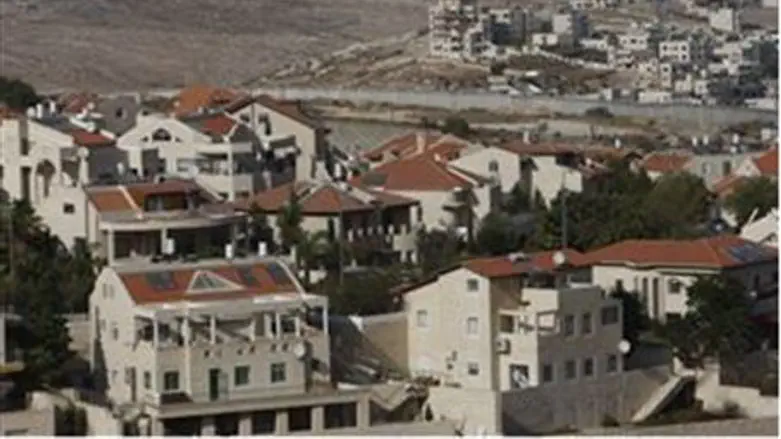
An emergency meeting was held in Jerusalem’s Pisgat Ze’ev neighborhood on Monday. The meeting focused on preserving the Jewish character of the neighborhood, which, in addition to an influx of Arab homeowners, has become a center for youth who come from nearby Arab villages in the evening to strike up relationships with Jewish girls living in the neighborhood.
The meeting was attended by Rabbi Yitzchak Shapira who authored the controversial Torat Hamelekh book, activist Moshe Ben Zikri (who was driven out by the Israel Security Agency to Eilat), and Benzi Gopstein, the chairman of the Lehava organization. Also in attendance were residents of Yitzhar who were removed from the community by an administrative order a few weeks ago.
The meeting was called “A Jewish Pisgat Ze’ev” and the participants tried to come up with ways of avoiding intermarriage and dealing with Arabs who are trying to take over the neighborhood.
Rabbi Yitzchak Shapira called Pisgat Ze’ev’s struggle to remain Jewish a “flagship” struggle, saying Pisgat Ze’ev needs to set an example to other places in Israel.
“This place needs to be a flagship, not just to itself but also to what is going on in every other place in the land of Israel, because this problem is a problem that encompasses many other places,” he said. “We need to establish that the Jews are the chosen people and it’s not a shame to say so. We say this day and night – in our homes, in our synagogues, and in our schools – and we have to say it in the streets and say it also in public places and also to the foreign nations who are here in Israel.”
Bentzi Gopstein of the Lehava organization, whose goal is to prevent marriages between Jewish women and non-Jewish men, praised the residents of Pisgat Ze’ev for their struggle and offered his organization’s assistance.
“We will come and strengthen every place that acts and fights against the phenomenon of Jewish assimilation,” he said. “Thank G-d, here in Pisgat Ze’ev there are great successes, and we hope that people wake up in the other parts of the country as well.
“We’ve advised the people here to do anything, as long as it’s done legally,” added Gopstein. “We’ll go around with cameras and document each Arab who drinks beer and harasses a Jewish girl and then publicize his picture in his village. Everything is legal. We always operate in a legal way, but you can win the struggle even when you work legally.”